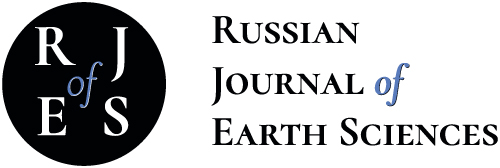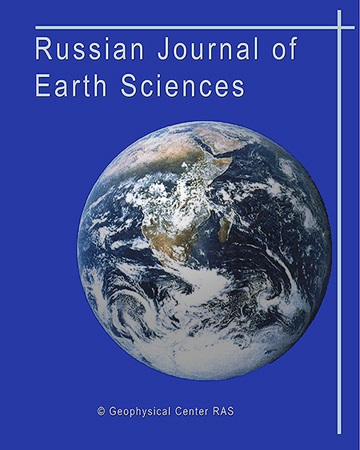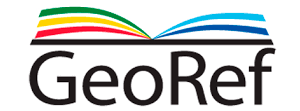Schmidt Institute of Physics of the Earth RAS
Moscow, Russian Federation
Modern geoinformation systems (GIS) are an indispensable instrument for efficient management of geographically referenced Earth sciences data. The Geophysical Center of the Russian Academy of Sciences (GC RAS) has a vast experience of development of web-oriented multidisciplinary GIS for geological and geophysical data representation and comprehensive analysis. One of the major segments of the geodatabase of GC RAS is geophysical and geological data on the solid Earth. This includes data on global gravity models, rheological parameters of the lithosphere, Moho depths, dynamic topography etc. As a case study for this paper an integrative density model of the crust and upper mantle of Eurasia was considered. It was compiled by the scientific team of the German Research Center for Geosciences (GFZ) using large sets of available seismic and gravity field data. This paper gives a detailed description of the model's construction process. For representation of this model in GIS environment it was converted into a GIS-compatible series of the data layers. To facilitate the wide access to this data, they were published in the form of an online map-service.
Earth crust, upper mantle, density heterogeneity, integrative density model, residual gravity, residual topography, geoinformation system, geodatabase, online map-services
1. Anderson, D. L., J. D. Bass (1984) , Mineralogy and composition of the upper mantle, Geophysical Research Letters, 11, p. 637-640, https://doi.org/10.1029/gl011i007p00637.
2. Beriozko, A., A. Lebedev, A. Soloviev, et al. (2011) , Intellectual Geoinformation System for Earth Sciences, Environment Technology Resources Proceedings of the International Scientific and Practical Conference, 2, p. 48, https://doi.org/10.17770/etr2011vol2.966. EDN: https://elibrary.ru/UELAXL
3. Beriozko, A., et al. (2009) , Intellectual GIS, Herald of the Earth Sciences Department of RAS, 1, p. 1-7, https://doi.org/10.2205/2009nz000006.
4. Braitenberg, C., J. Ebbing (2009) , The GRACE-satellite gravity and geoid fields in analysing large-scale, cratonic or intracratonic basins, Geophysical Prospecting, 57, p. 559-571, https://doi.org/10.1111/j.1365-2478.2009.00793.x. EDN: https://elibrary.ru/MLLJGZ
5. Cammarano, F., et al. (2003) , Inferring upper-mantle temperatures from seismic velocities, Physics of the Earth and Planetary Interiors, 138, p. 197-222, https://doi.org/10.1016/s0031-9201(03)00156-0. EDN: https://elibrary.ru/LXYKMJ
6. Chang, S.-J., S. Van der Lee (2011) , Mantle plumes and associated flow beneath Arabia and East Africa, Earth and Planetary Science Letters, 302, p. 448-454, https://doi.org/10.1016/j.epsl.2010.12.050. EDN: https://elibrary.ru/OMJRFR
7. Christensen, N. I., W. D. Mooney (1995) , Seismic velocity structure and composition of the continental crust: A global view, Journal of Geophysical Research: Solid Earth, 100, p. 9761-9788, https://doi.org/10.1029/95jb00259.
8. Divins D. L. (2003), Total Sediment Thickness of the World's Oceans and Marginal Seas, NOAA NGDC, Boulder, Colorado.
9. Exxon, (1985) , Tectonic Map of the World, 16 pp., Tulsa, Okla.
10. Fan, G., et al. (1994) , Active tectonics of the Pamirs and Karakorum, Journal of Geophysical Research, 99, p. 7131, https://doi.org/10.1029/93jb02970.
11. Forsberg, R., C. C. Tscherning (1997) , Topographic effects in gravity field modelling for BVP, Geodetic Boundary Value Problems in View of the One Centimeter Geoid, p. 239-272, Springer-Verlag, Berlin.
12. Forte, A. M., R. Peltier (1991) , Viscous flow models of global geophysical observables: 1. Forward problems, Journal of Geophysical Research: Solid Earth, 96, p. 20,131-20,159, https://doi.org/10.1029/91jb01709.
13. Fu, P. (2016) , Getting to Know Web GIS, ESRI Press, Redlands, CA, USA.
14. Goes, S., R. Govers, P. Vacher (2000) , Shallow mantle temperatures under Europe from P and S wave tomography, Journal of Geophysical Research: Solid Earth, 105, p. 11,153-11,169, https://doi.org/10.1029/1999jb900300. EDN: https://elibrary.ru/LRXFNF
15. Jordan, T. H. (1978) , Composition and development of the continental tectosphere, Nature, 274, no. 5671, p. 544-548.
16. Jordan, T. H. (1988) , Structure and formation of the continental tectosphere, J. Petrol., 1, Special Volume, p. 11-37, https://doi.org/10.1093/petrology/special_volume.1.11.
17. Kaban, M. K. (2011) , Gravity anomalies, Interpretation, Encyclopedia of Solid Earth Geophysics (2nd Edition), Gupta H. K. (ed.), p. 456-461, Springer, Dordrecht (ISBN 978-90-481-8701-0).
18. Kaban, M. K., et al. (2016a) , 3D density model of the upper mantle of Asia based on inversion of gravity and seismic tomography data, Geochemistry, Geophysics, Geosystems, 17, p. 4457-4477, https://doi.org/10.1002/2016gc006458. EDN: https://elibrary.ru/YUYZGZ
19. Kaban, M. K., S. El Khrepy, et al. (2016b) , Three-dimensional density model of the upper mantle in the Middle East: Interaction of diverse tectonic processes, Journal of Geophysical Research: Solid Earth, 121, p. 5349-5364, https://doi.org/10.1002/2015jb012755. EDN: https://elibrary.ru/WRYTED
20. Kaban, M. K., S. El Khrepy, N. Al-Arifi (2016c) , Isostatic Model and Isostatic Gravity Anomalies of the Arabian Plate and Surroundings, Pure and Applied Geophysics, 173, p. 1211-1221, https://doi.org/10.1007/s00024-015-1164-0. EDN: https://elibrary.ru/IHZLGZ
21. Kaban, M. K., W. D. Mooney, A. G. Petrunin (2015) , Cratonic root beneath North America shifted by basal drag from the convecting mantle, Nature Geoscience, 8, p. 797-800, https://doi.org/10.1038/ngeo2525. EDN: https://elibrary.ru/VFBXRR
22. Kaban, M. K., A. G. Petrunin, H. Schmeling, M. Shahraki (2014) , Effect of Decoupling of Lithospheric Plates on the Observed Geoid, Surveys in Geophysics, 35, p. 1361-1373, https://doi.org/10.1007/s10712-014-9281-3. EDN: https://elibrary.ru/UGHTZH
23. Kaban, M. K. , P. Schwintzer, I. M. Artemieva, W. D. Mooney (2003) , Density of the continental roots: compositional and thermal contributions, Earth and Planetary Science Letters, 209, p. 53-69, https://doi.org/10.1016/s0012-821x(03)00072-4. EDN: https://elibrary.ru/MAKYMV
24. Kaban, M. K., P. Schwintzer, C. Reigber (2004) , A new isostatic model of the lithosphere and gravity field, Journal of Geodesy, 78, p. 368-385, https://doi.org/10.1007/s00190-004-0401-6. EDN: https://elibrary.ru/MDCOAN
25. Kaban, M. K., M. Tesauro, S. Cloetingh (2010) , An integrated gravity model for Europe's crust and upper mantle, Earth and Planetary Science Letters, 296, p. 195-209, https://doi.org/10.1016/j.epsl.2010.04.041. EDN: https://elibrary.ru/MYEPOP
26. Kaban, M. K., V. Trubitsyn (2012) , Density structure of the mantle transition zone and the dynamic geoid, Journal of Geodynamics, 59-60, p. 183-192, https://doi.org/10.1016/j.jog.2012.02.007. EDN: https://elibrary.ru/RGCMRZ
27. Krasnoperov, R. I., A. A. Soloviev (2015) , Analytical geoinformation system for integrated geological-geophysical research in the territory of Russia, Mining Journal (Gornyi Zhurnal), 10, p. 89-93, https://doi.org/10.17580/gzh.2015.10.16. EDN: https://elibrary.ru/VCTAUR
28. Krasnoperov, R. I., A. A. Soloviev, B. P. Nikolov, et al. (2016) , Interactive web-application for complex studying of spatial information on Earth sciences from the geodatabase of GC RAS, Geoinformatics Research Papers, 4, https://doi.org/10.2205/2016BS039. EDN: https://elibrary.ru/YJXIYV
29. Kusky, T. M., B. F. Windley, M.-G. Zhai (2007) , Tectonic evolution of the North China Block: from orogen to craton to orogen, Geological Society, London, Special Publications, 280, p. 1-34, https://doi.org/10.1144/sp280.1. EDN: https://elibrary.ru/LPNEZV
30. Laske G. et al. (2013), Update on CRUST1.0-a 1-degree global model of Earth's crust. Geophys. Res. Abstr. EGU General Assembly 2013, 7-12 April, 2013 in Vienna, Austria
31. McDonough, W. F., S. S. Sun (1995) , The composition of the Earth, Chemical Geology, 120, p. 223-253, https://doi.org/10.1016/0009-2541(94)00140-4. EDN: https://elibrary.ru/XXUEUR
32. Mooney, W. (2007) , Crust and Lithospheric Structure - Global Crustal Structure, Volume 1: Seismology and the Structure of the Earth, p. 361-417, Elsevier, https://doi.org/10.1016/B978-044452748-6/00011-0.
33. Mooney, W. D., M. K. Kaban (2010) , The North American upper mantle: Density, composition, and evolution, Journal of Geophysical Research, 115, https://doi.org/10.1029/2010jb000866. EDN: https://elibrary.ru/GBXQIK
34. Nikolov, B. P., J. I. Zharkikh, A. A. Soloviev, et al. (2015) , Integration of data mining methods for Earth science data analysis in GIS environment, Russian Journal of Earth Sciences, 15, p. 1-14, https://doi.org/10.2205/2015es000559. EDN: https://elibrary.ru/VCPAIN
35. Petrunin, A. G., M. K. Kaban, I. Rogozhina, V. Trubitsyn (2013) , Revising the spectral method as applied to modeling mantle dynamics, Geochemistry, Geophysics, Geosystems, 14, p. 3691-3702, https://doi.org/10.1002/ggge.20226. EDN: https://elibrary.ru/SKYAMZ
36. Rybkina, A., S. Hodson, A. Gvishiani, et al. (2018) , CODATA and global challenges in data-driven science, Russian Journal of Earth Sciences, 18, p. 1-11, https://doi.org/10.2205/2018es000625. EDN: https://elibrary.ru/YBHHWP
37. Schaeffer, A. J., S. Lebedev (2013) , Global shear speed structure of the upper mantle and transition zone, Geophysical Journal International, 194, p. 417-449, https://doi.org/10.1093/gji/ggt095.
38. Schaeffer, A. J., S. Lebedev (2014) , Imaging the North American continent using waveform inversion of global and USArray data, Earth and Planetary Science Letters, 402, p. 26-41, https://doi.org/10.1016/j.epsl.2014.05.014. EDN: https://elibrary.ru/UVIXJX
39. Open Data in a Big Data World. Paris: International Council for Science (ICSU), International Social Science Council (ISSC), The World Academy of Sciences (TWAS), InterAcademy Partnership (IAP)
40. Shako, R., C. Förste, O. Abrikosov, et al. (2013) , EIGEN-6C: A High-Resolution Global Gravity Combination Model Including GOCE Data, Advanced Technologies in Earth Sci., p. 155-161, Springer, Berlin Heidelberg, https://doi.org/10.1007/978-3-642-32135-1_20.
41. Soloviev, A. A., R. I. Krasnoperov, B. P. Nikolov, et al. (2018) , Web-Oriented Software System for Analysis of Spatial Geophysical Data Using Geoinformatics Methods, Izvestiya, Atmospheric and Oceanic Physics, 54, p. 1312-1319, https://doi.org/10.1134/s0001433818090360. EDN: https://elibrary.ru/TSQLDW
42. Soloviev, A. A., J. I. Zharkikh, R. I. Krasnoperov, et al. (2016) , GIS-oriented solutions for advanced clustering analysis of geoscience data using ArcGIS platform, Russian Journal of Earth Sciences, 16, p. 1-6, https://doi.org/10.2205/2016es000587. EDN: https://elibrary.ru/XESXYH
43. Stixrude, L., C. Lithgow-Bertelloni (2005) , Thermodynamics of mantle minerals - I. Physical properties, Geophysical Journal International, 162, p. 610-632, https://doi.org/10.1111/j.1365-246x.2005.02642.x. EDN: https://elibrary.ru/MEUXEL
44. Stolk, W., M. Kaban, F. Beekman, et al. (2013) , High resolution regional crustal models from irregularly distributed data: Application to Asia and adjacent areas, Tectonophysics, 602, p. 55-68, https://doi.org/10.1016/j.tecto.2013.01.022. EDN: https://elibrary.ru/RGVVXL
45. Tesauro, M., M. K. Kaban, S. A. P. L. Cloetingh (2008) , EuCRUST-07: A new reference model for the European crust, Geophysical Research Letters, 35, https://doi.org/10.1029/2007gl032244. EDN: https://elibrary.ru/LLCWHV
46. Tesauro, M., M. K. Kaban, S. A. P. L. Cloetingh (2009) , 3D Crustal Model of Western and Central Europe as a Basis for Modelling Mantle Structure, New Frontiers in Integrated Solid Earth Sciences, p. 39-69, Springer, Netherlands, https://doi.org/10.1007/978-90-481-2737-5_2.
47. Tesauro, M., M. K. Kaban, et al. (2014) , NACr14: A 3D model for the crustal structure of the North American Continent, Tectonophysics, 631, p. 65-86, https://doi.org/10.1016/j.tecto.2014.04.016. EDN: https://elibrary.ru/TZSRJL
48. Wilkinson, M., M. Dumontier, I. Aalbersberg, et al. (2016) , The FAIR Guiding Principles for scientific data management and stewardship, Scientific Data, 3160018, https://doi.org/10.1038/sdata.2016.18.
49. Yang, J.-H., et al. (2010) , Diachronous decratonization of the Sino-Korean craton: Geochemistry of mantle xenoliths from North Korea, Geology, 38, p. 799-802, https://doi.org/10.1130/g30944.1. EDN: https://elibrary.ru/MZHPWS
50. Zheng, Y., S. Zhang (2007) , Formation and evolution of Precambrian continental crust in South China, Chinese Science Bulletin, 52, p. 1-12, https://doi.org/10.1007/s11434-007-0015-5. EDN: https://elibrary.ru/TTIXYT
















